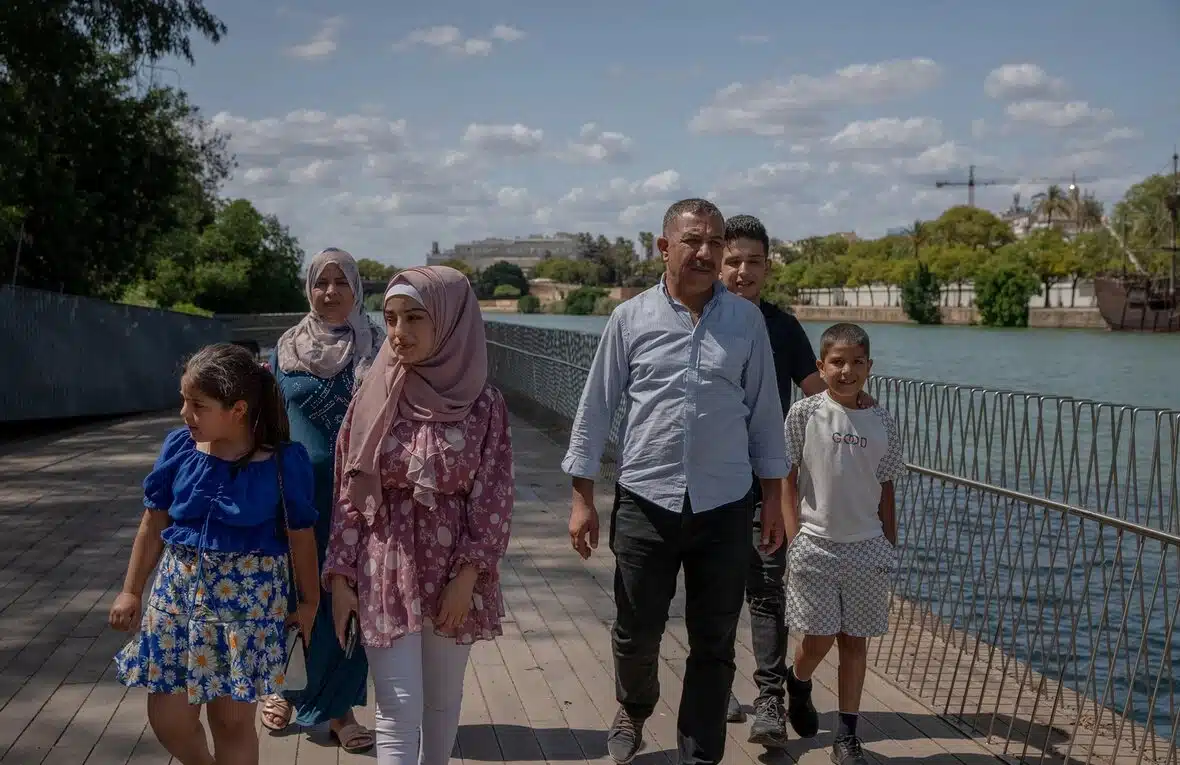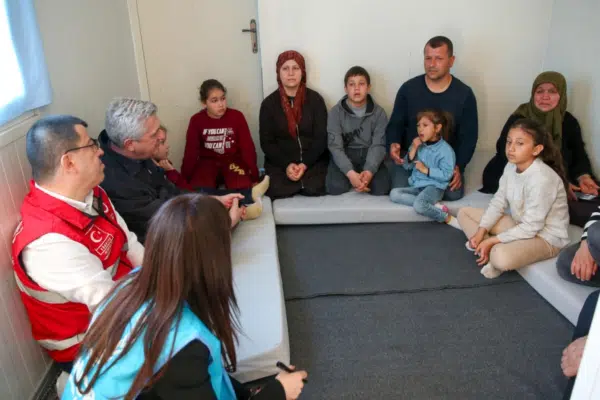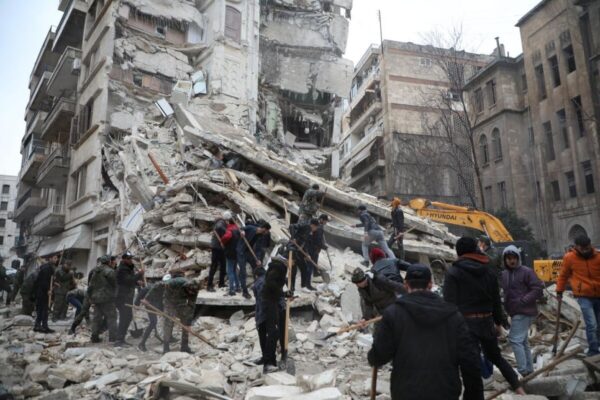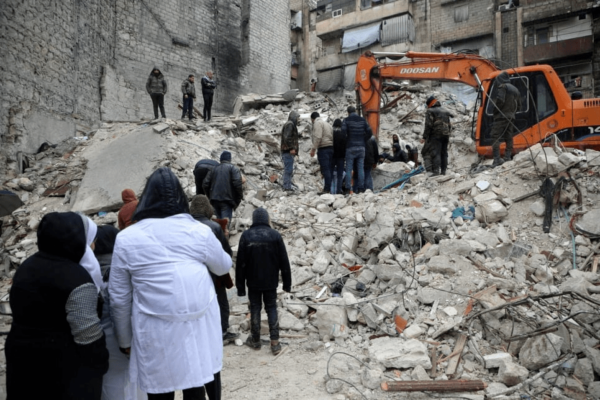
Ali Al-Ahmad, his wife Zahida and their four children walk along the Guadalquivir River in Seville, southern Spain. © UNHCR/Marc Rovira
Six months after losing everything during the devastating earthquakes that hit southeastern Türkiye, a Syrian refugee family are making a new life in the Spanish city of Seville
By Zahra Mackaoui and María Jesús Vega Pascual in Seville, Spain
It was a Sunday like any other for Ali Al-Ahmad. It was his day off and he spent it with his family at their home in Gaziantep, southeastern Türkiye.
It had been 10 years since Ali, 45, his wife Zahida and their four children were forced to flee Aleppo, Syria, and in that time, they had slowly rebuilt their lives. Their children were in school, Ali had work in a clothing factory and, with great effort, they had built a new home in a country that had welcomed them. They were proud of what they had achieved.
But at 4:16 a.m. the following morning, on 6 February, the Al-Ahmads faced another disaster. This time it was not bombs that threatened to bring down their home, but an earthquake. “In an instant, in 16 seconds, it was all gone,” said Ali. “It was terrifying, you felt like you could die at any moment, the building was shaking, people were screaming … but somehow, I managed to gather the children and get them out of the building.”
Measuring 7.8 and 7.5 on the Richter scale, the two earthquakes and their aftershocks were the most devastating recorded in Türkiye in a century, impacting a region of 15 million people, 1.7 million of whom were refugees. The natural disaster, which killed more than 55,000 people in southeastern Türkiye and northern Syria, hit communities at the peak of winter, leaving millions of people homeless.
Ali and his family were no exception. After the earthquake, they found themselves stranded in the harsh Turkish winter, living in a small tent. They huddled next to each other to keep warm, living on bread, cookies, nuts and some hot food that was occasionally distributed.
One day, while in the tent with his family, Ali received a call from the UN Refugee Agency, UNHCR: “They told me that we had been selected for resettlement in Spain. I looked around me, I saw my children and my wife; we had lost everything again, but there was hope for the future,” he recalled. “To have someone reach out to you in that situation and want to help you, it’s an incredible feeling.”
Solidarity through resettlement
On 4 March, just one month after the earthquakes, Ali and his family arrived in Spain on the first emergency resettlement flight from Türkiye for earthquake-affected refugees. Spain was the first country to respond to UNHCR’s request for States to expedite their resettlement processes for refugees affected by the disaster. After that flight, others followed from Türkiye, allowing nearly 300 refugees to start a new life in Spain. They form part of the Spanish government’s pledge to resettle 1,200 refugees this year.
The resettlement of refugees is a tangible expression of solidarity and responsibility-sharing with countries such as Türkiye, which has been hosting the world’s largest population of refugees and asylum seekers since 2014. It also offers immediate solutions to families in vulnerable situations, such as Ali’s.
The Al-Ahmad family is currently living in a refugee reception centre run by the Ministry of Inclusion, Social Security and Migration in Seville and the children have started school. Having survived a war and an earthquake, and having lost loved ones to both, their stay at the centre is helping them heal from the trauma. “One of my sons still has nightmares and often wakes up screaming in the middle of the night,” said Ali.
In addition to covering their basic needs for up to two years, the centre’s team of professionals provides them with psychosocial support, Spanish classes, administrative and job orientation to help them integrate into Spanish society and become independent.
Ali knows only too well the challenges of starting a life from scratch. But all his energies are now focused on learning Spanish and finding a job so his family can leave the centre and move into an apartment. “Even though I’m getting old, I still have the heart and mind of a young man,” he said. “I’m determined to build here, to work and educate my children. I want to focus on my dreams and make them happen.”
Originally published by UNHCR on 4 August 2023.





